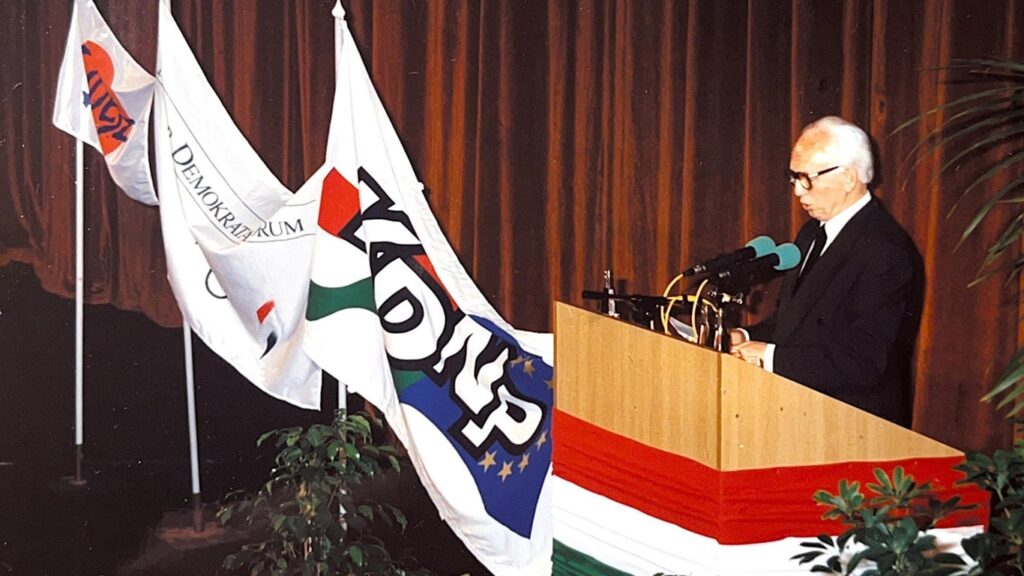In the civil movement

Ferenc Mádl, the conservative side’s joint candidate for President, speaks at the Erkel Theatre (courtesy of Mádl family, with approval of András Mádl)
As a joint candidate for president, he was clearly in the lead on the conservative side. From the beginning, Mádl stated that he had no political ambitions of his own, but that he wanted to use his position to achieve three goals: a) to ensure the unity of the conservative base; b) to represent and cultivate the political legacy of his friend the late Prime Minister József Antall (“Antall’s legacy”); c) to bring about a generational change, as a prerequisite for ensuring long-term success. Professor Mádl’s role as symbolic leader of the opposition was to initiate this process, to play a decisive role in the creation and maintenance of the necessary institutions, such as the Hungarian Civic Cooperation Association (“MPEE”), and to play a significant role in the renewal of the conservative side by making his own network of contacts available.
Following the conservative victory in the 1998 elections, and formation of the first Orbán government, he returned to university, as he had planned.
After the elections of 1994, Professor Mádl returned to university as planned. He was saddened by the defeat and disintegration of the conservative side in the elections, but he had no public policy goals or plans. As the 1995 presidential elections approached, his former political colleagues raised his name as someone who could represent the unity of the conservative base. Mádl was aware that his candidacy was merely symbolic, as the then President of the Republic, Árpád Göncz enjoyed a stable parliamentary majority. Yet, he accepted the candidacy because he believed deeply that “without a parliamentary alternative, the whole systemic change is worthless.”